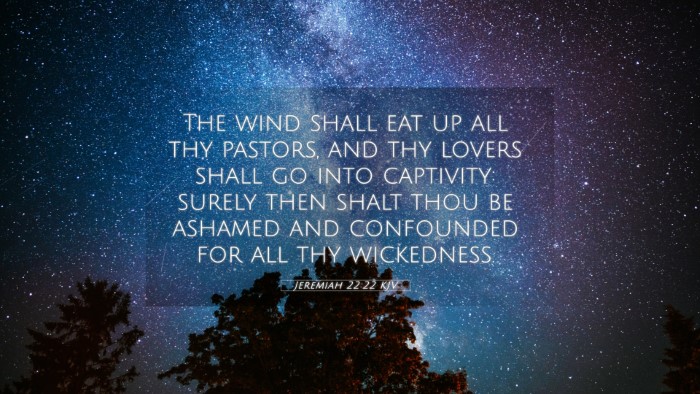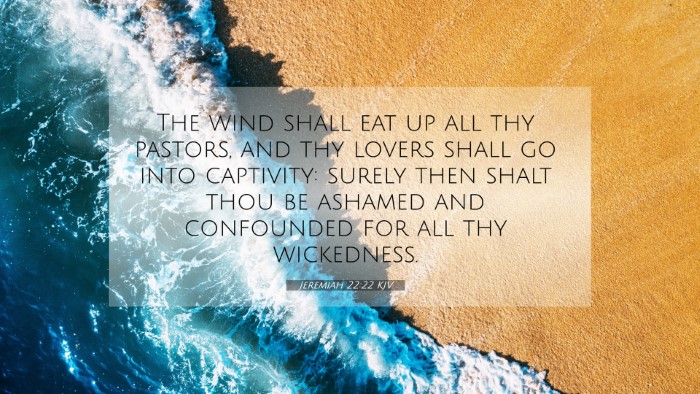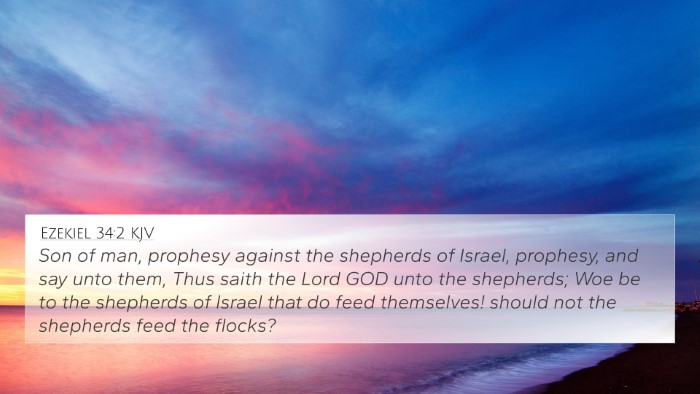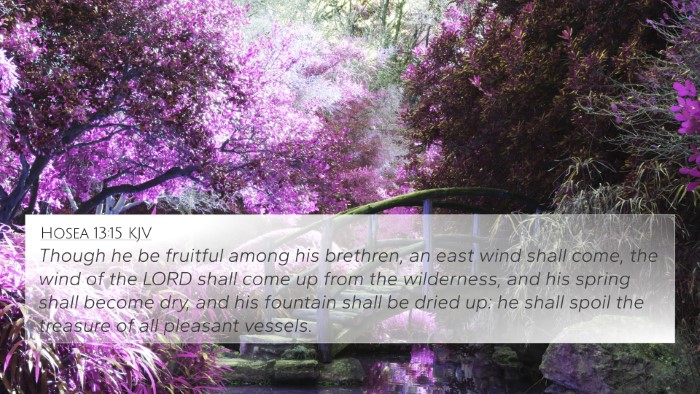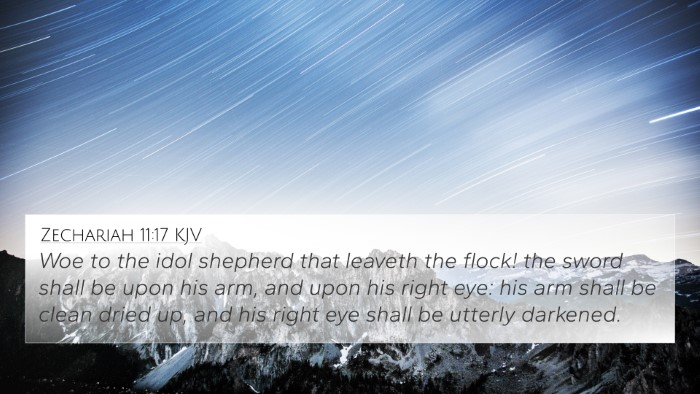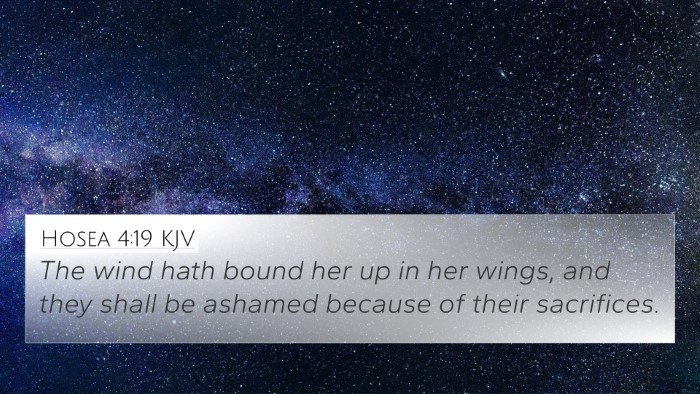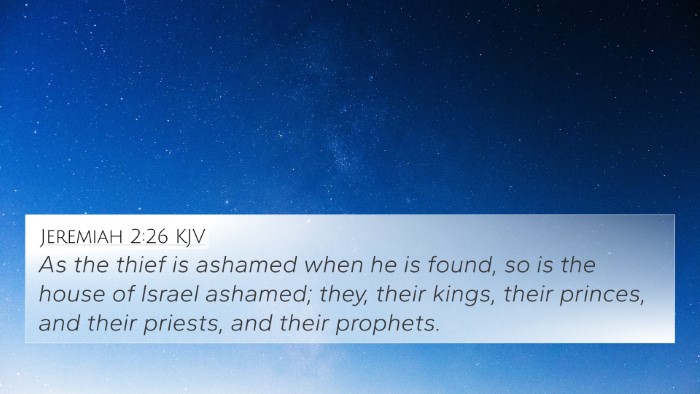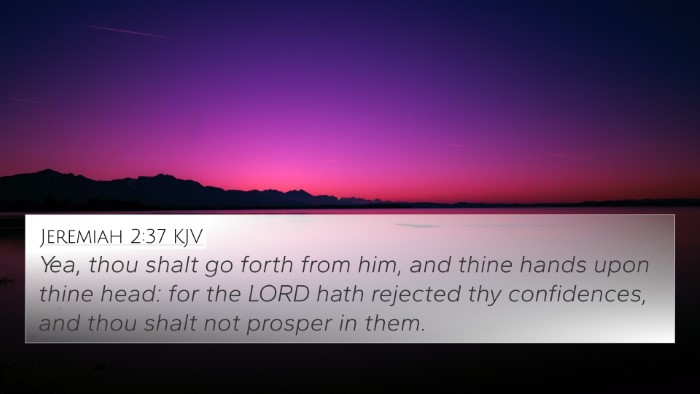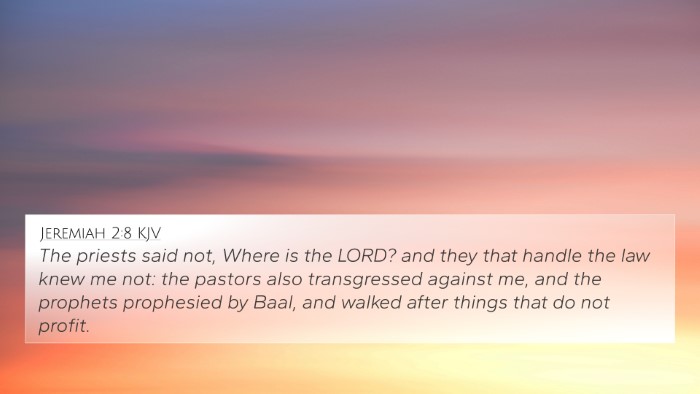Understanding Jeremiah 22:22
Verse: "The wind shall eat up all thy pastors, and thy lovers shall go into captivity: surely then shalt thou be ashamed and confounded for all thy wickedness." - Jeremiah 22:22
Meaning and Interpretation
This verse from the Book of Jeremiah carries a profound message regarding the consequences of leadership and the inevitable downfall of those who betray their obligations to God and the people. Through the imagery of the "wind" consuming "pastors" and the subsequent suffering that results, Jeremiah emphasizes the fleeting nature of human power and the judgment that follows wickedness.
Key Themes
- Divine Judgment: This verse illustrates that God's judgment will come upon those failing to shepherd well.
- Accountability of Leaders: It highlights that leaders are held to a higher standard and their failures lead to collective suffering.
- Consequences of Wickedness: The shame and confusion mentioned depict the internal collapse that accompanies moral decline.
Commentary Insights
Various scholars have reflected on this verse, providing diverse insights that deepen our understanding:
Matthew Henry
Matthew Henry notes that the "wind" symbolizes a swift and unstoppable force representing judgment. He also emphasizes how the confidence placed in earthly leaders leads to inevitable disappointment when they fail to uphold their responsibilities.
Albert Barnes
Albert Barnes elaborates on the idea that those who are supposed to guide others (pastors) fall victim to their own shortcomings. The “captivity” signifies not just physical captivity, but a deeper spiritual bondage resulting from sin.
Adam Clarke
Adam Clarke interprets this verse as a powerful warning. He suggests that the “lovers” refer to alliances and relationships built on falsehood rather than genuine adherence to God's covenant.
Bible Cross-References
To further explore the themes presented in Jeremiah 22:22, several cross-references may enhance your understanding:
- Jeremiah 3:15: Highlights the importance of shepherds who lead wisely.
- Ezekiel 34:2-4: Critique of unfaithful shepherds and the consequences of their actions.
- Isaiah 47:3: The shame that follows the fall of leaders who forsake righteousness.
- Matthew 7:15: A warning about false prophets who mislead God’s people.
- Luke 6:39: Context of leaders leading others astray.
- 1 Peter 5:2-4: The call for elders to shepherd the flock willingly and faithfully.
- Jeremiah 23:1-4: God’s response to unfaithful leaders.
- Micah 3:11: The bribery and corruption within spiritual leadership.
- Psalms 78:72: A reminder of God appointing leaders who lead with integrity.
- Hebrews 13:17: An exhortation to submit to leaders and the responsibility they bear before God.
Connections Between Bible Verses
This verse deeply connects with themes evident in both the Old and New Testaments, showcasing how God’s principles regarding leadership, accountability, and moral conduct remain timeless.
Tools for Bible Cross-Referencing
When studying Scripture, utilizing tools for Bible cross-referencing can provide clarity and insight. A Bible concordance or a cross-reference Bible study can help unveil the intricate connections between Old and New Testament teachings.
How to Use Bible Cross-References
Understanding how to find cross-references in the Bible enhances both personal study and sermon preparation. By examining how various scriptures relate to one another, one can gain a more profound comprehension of biblical narratives and themes.
Conclusion
In conclusion, Jeremiah 22:22 serves as a stark reminder of the moral responsibility leaders bear and the ramifications of neglecting this duty. By drawing connections through other scriptures, this verse encourages believers to reflect on their spiritual commitments and the integrity of their leaders.

